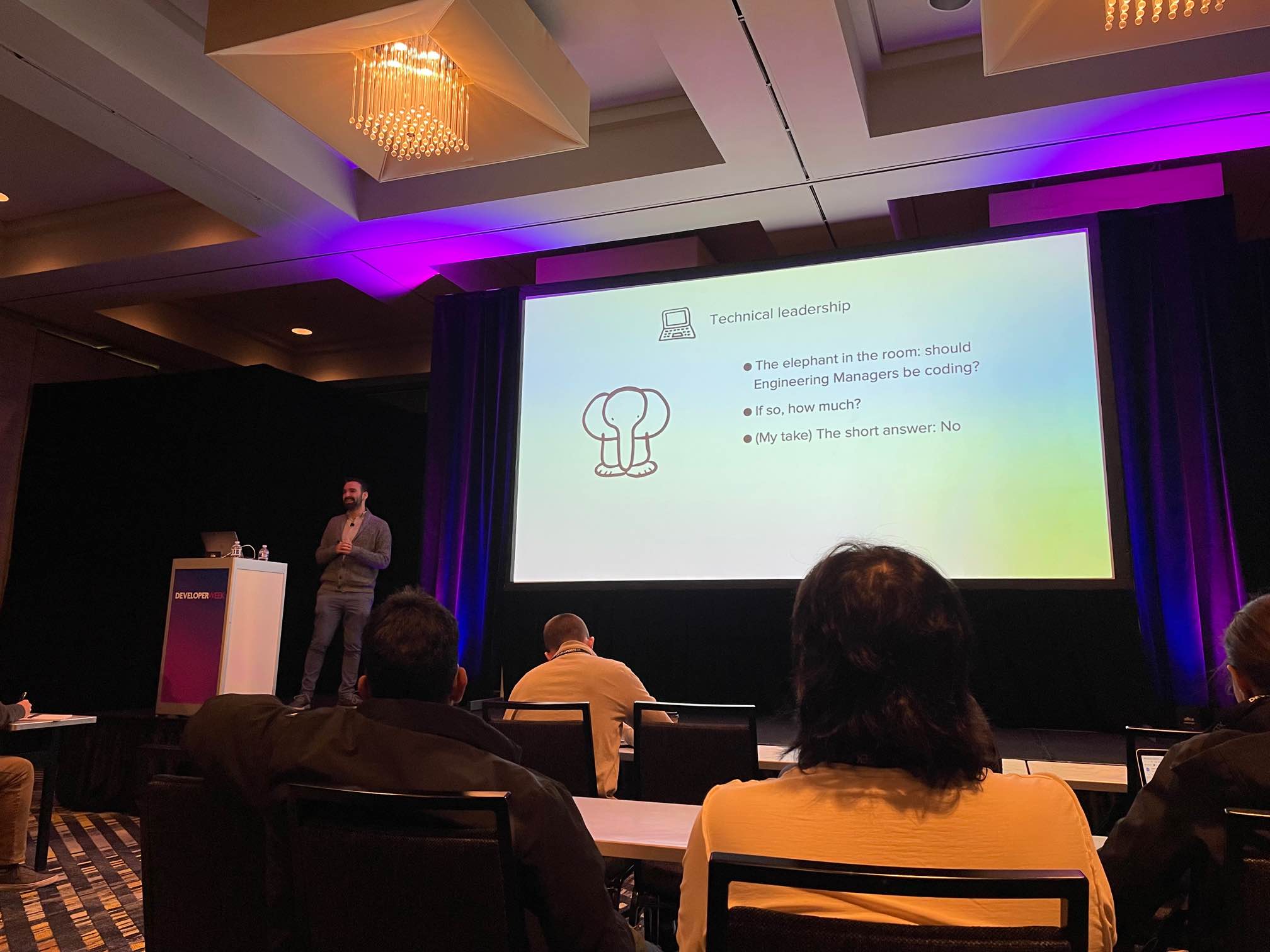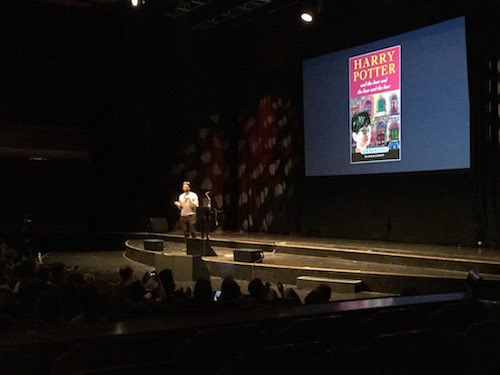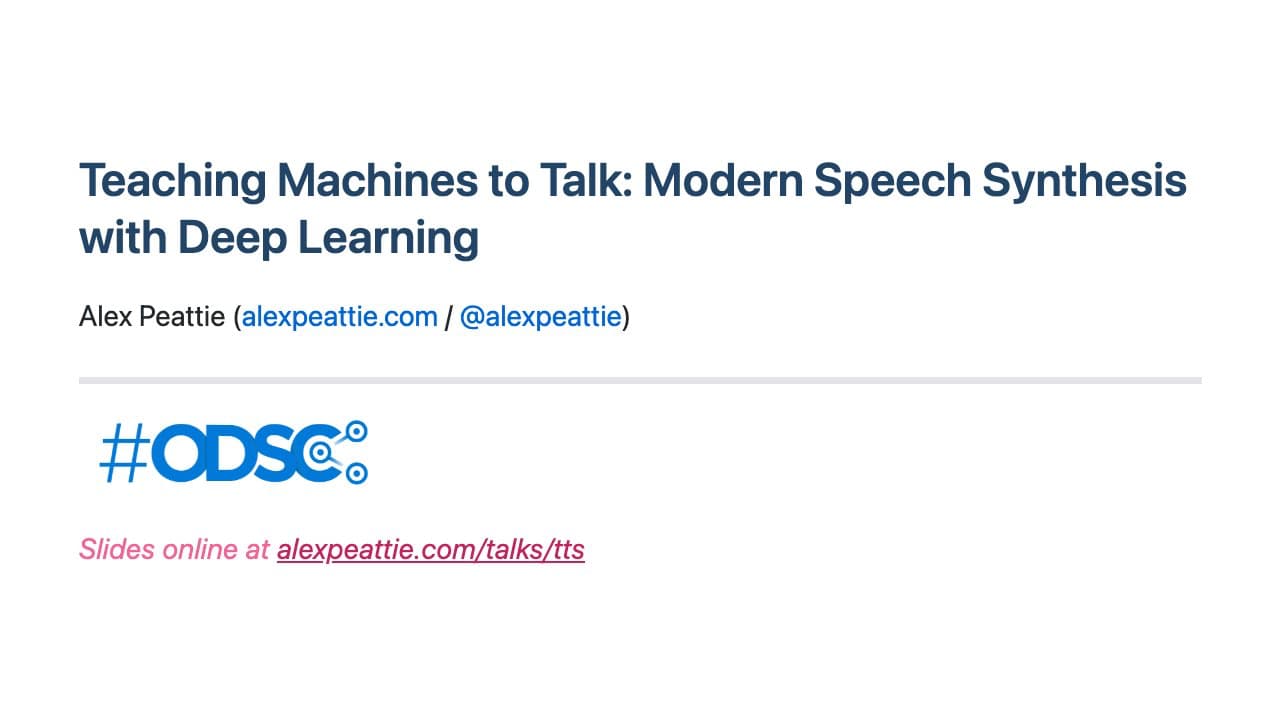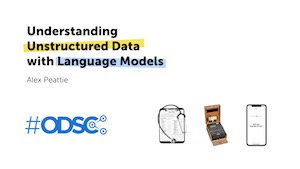
In this talk, I try to unpack the role of an EM - and answer a question that I struggled with when I first starting managing engineers in 2015. I go through 10 ideas I've found particularly useful when navigating the (sometimes nebulous EM role): the 6 buckets where EMs can spend their time, the 3 meta-skills that make EMs more effective, and the framework I use to guage if I'm doing a good job as an engineering leader.
In this talk, I give an introduction for complete beginners to speech synthesis from deep learning. The talk walks through a the background to the emergency of ML methods in speech synthesis, explains in detail the exact problem domains we're working in when building TTS systems (sequence-to-sequence problems, audio synthesis) and gives a nuts-and-bolts guide to getting started training a TTS system with a custom voice from scratch.
Ruby-us Hagrid: Writing Harry Potter with Ruby
Brighton Ruby 2018, RubyConf 2018, Pivorak 2019

This is a talk based around a big idea: using Ruby to write a brand new Harry Potter story, completely automatically. Whether we’re embarking on this journey for self-enlightenment, or to grab a slice of J. K.’s billions, along the way we’ll see first-hand the power and elegance of Ruby for tackling problems in the field of natural language processing.
It's estimated that up to 90% of the data which organizations hold is unstructured, living in the form of documents, emails, reviews, reports, chat logs and so on. This talk hopes to cast a new light on this often overlooked source of insight with a deep dive into language models: one of the most powerful tools at our disposal for understanding unstructured data. The talk spans the history of language models, from the techniques used break Nazi codes at Bletchley Park to the emerging universal language models of 2018.
Dimensionality reduction is one of the most crucial tools in a data scientists’ toolbox, and modern tools can yield truly magical results. This talks looks at how we can take complex, messy, real-world datasets and simplify them, in order to create beautiful visualizations, to better understand the relationships between our data points, and to discover some surprising insights: including how dimensionality reduction could help you find love...
More talks...
These ones just have slides for now. Email me if you'd be interested in a recording of any of these talks.
- Thinking in components — Codebar Monthlies, August 2016
- Coding with love — Mind the Code, 2015
- Why splitting your focus could be good — Foundrs Health, 2015
- Disney's 12 Principles for Animating on the Web — Pivotal Labs London talks series, 2014


